PS5
PC
There’s a moment in Finding Paradise when everything pauses. You’ve walked through the architecture of a man’s life, rummaged through his regrets, and you realise: he’s not chasing happiness so much as coherence. That, in a sentence, is what Freebird’s quiet gem continues to be about.
Now arriving on PS5, Finding Paradise remains a small, devastating game about big, unspoken things: what we wish we’d done, who we wish we’d been, and how we make peace with the fragments that remain. It didn’t need to reinvent itself; it just needed to arrive cleanly, gently, and with a little more polish. On Sony’s hardware, it finally does.
You once again play as Dr. Eva Rosalene and Dr. Neil Watts, two employees of Sigmund Corp — a company that builds artificial memories for the dying. Their job: to enter the patient’s mind, relive their past, and reassemble it into a story that fulfils their final wish. It’s an unsettling concept disguised as a humane service, and Finding Paradise knows that contradiction is the point.
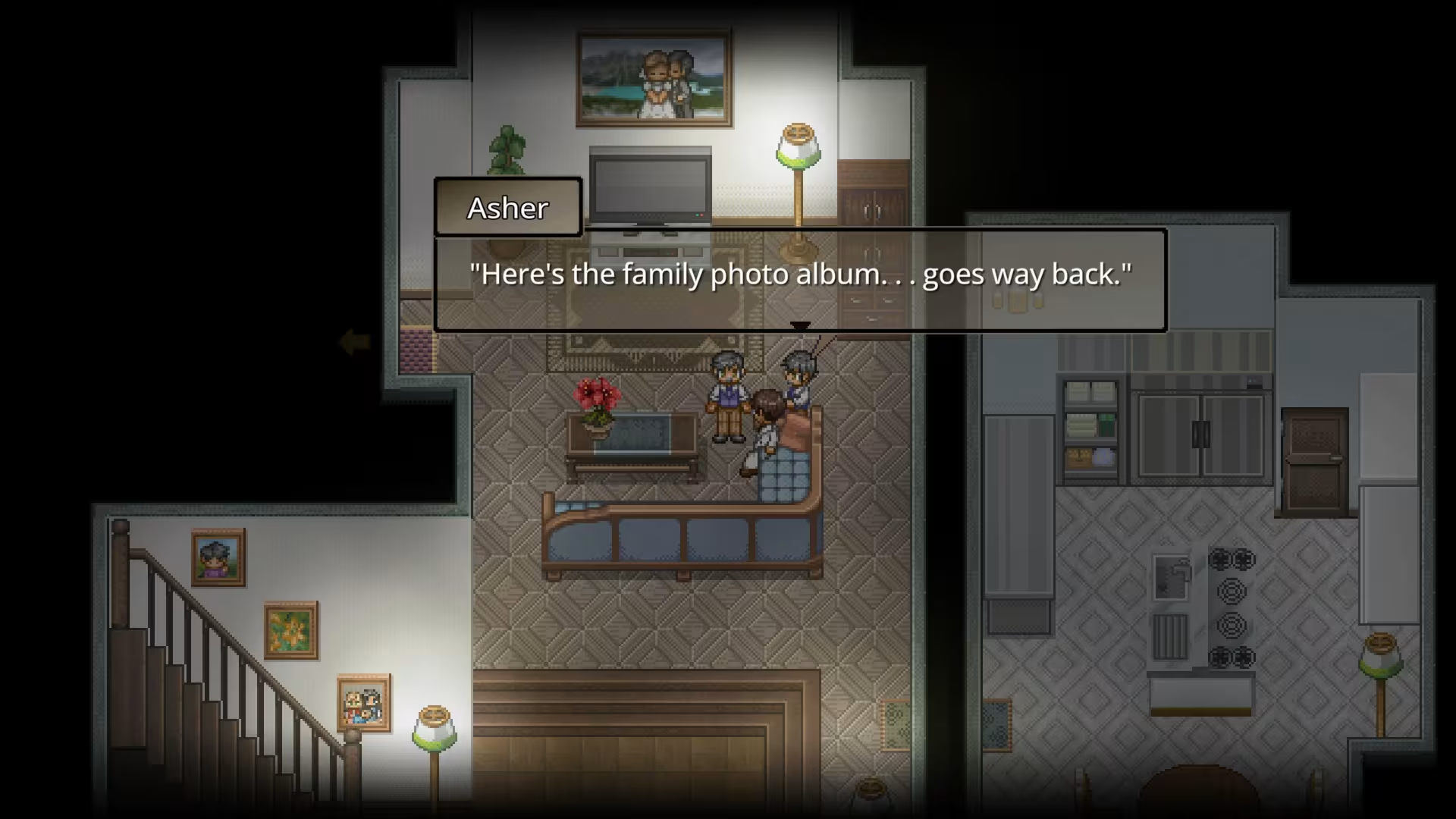
Their new patient, Colin, isn’t dying of anything cinematic. He’s just old, tired, and uncertain about what his life meant. His request is simple but paradoxical: he wants to feel content with his choice… without changing them. It’s an impossible wish, and Finding Paradise spends its five-hour runtime quietly asking whether anyone, living or dying, really knows what they want to remember.
If you played To the Moon, the formula will feel familiar. You explore Colin’s memories by collecting mementos — objects charged with meaning that let you jump between life’s chapters. You’ll see him as a boy, a pilot, a father, a husband, and a man quietly at odds with his own story.

It’s not gameplay in the traditional sense. You don’t solve puzzles so much as you untangle lives. The light interactive moments — matching patterns, aligning fragments, finding the emotional link between two memories — exist to give shape to what’s really happening: your gradual understanding of Colin.
On PS5, the structure feels a touch more seamless. Load times have vanished, transitions glide instead of snap, and the visuals breathe with gentle crispness. The game’s 16:9 presentation and 4K output don’t change its identity, but they let you notice it more — the painterly light across a memory of a seaside cliff, or the faint flicker of dusk in a hospital room.
This remaster doesn’t overhaul anything radical, but the enhancements are welcome. The art has been cleaned up without losing its handmade quality. Textures are sharper, lighting more consistent, and sprite animation smoother than before. DualSense support is surprisingly well judged. There’s a faint vibration when you cross memory boundaries, a subtle pulse when a key theme resolves. It’s not immersion by force; it’s touch as punctuation.
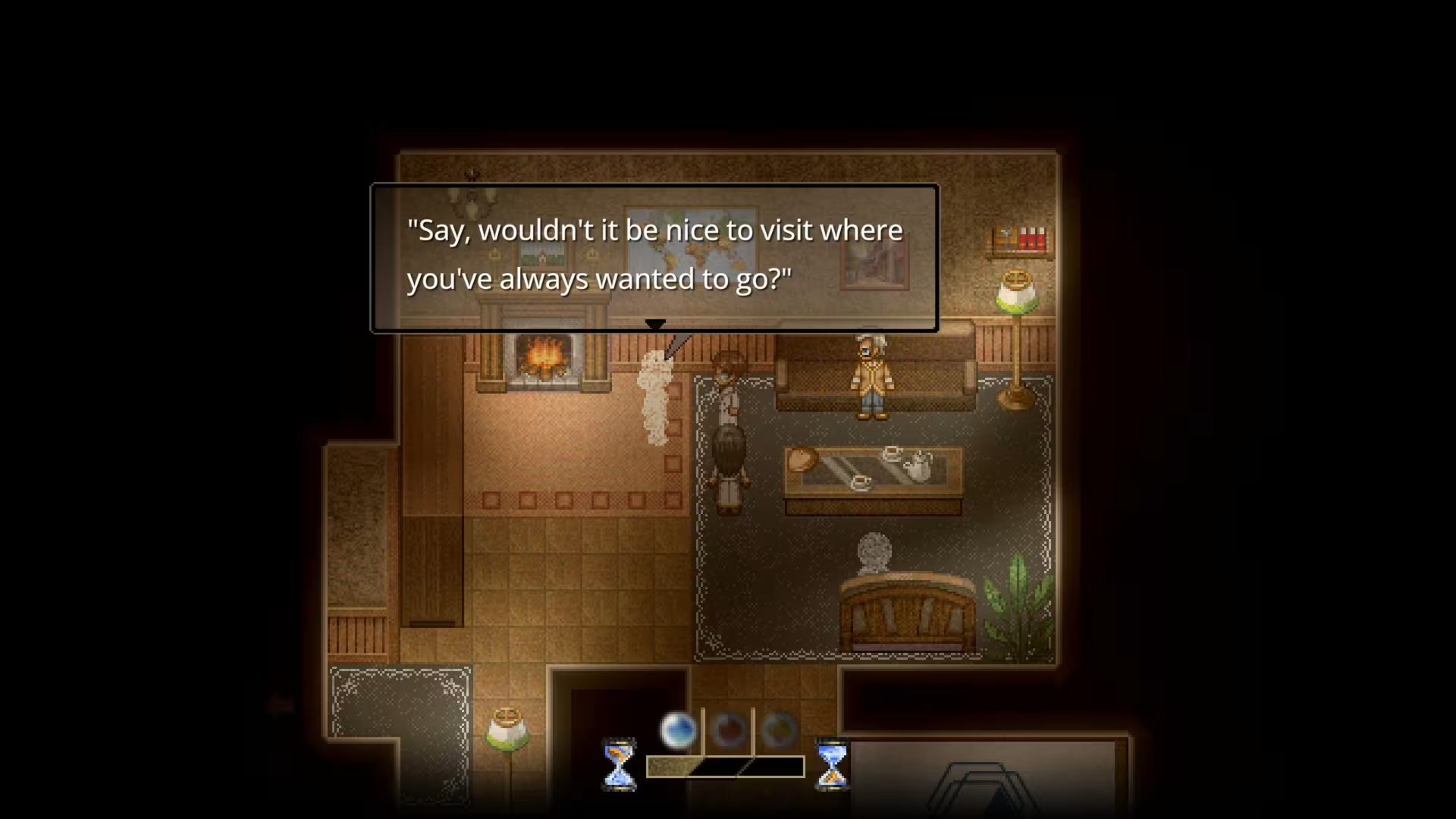
Music — the soul of Freebird’s universe — has been remastered in higher fidelity, and it shows. The piano work still leads the emotional charge, but now there’s depth: reverb tails that linger, strings that swell and fall with a little more air. There isn’t a track that stood out as much as the devastating main theme of To The Moon, but striking gold twice would have been a tough ask. Conversely, it feels like the soundtrack finally has room to breathe. It remains one of the best in the genre — delicate, melancholy, precise. The PS5 version’s remaster adds warmth and higher quality to the background tracks. The music never overplays emotion; it underlines it. It’s a score that trusts silence as much as sound.
None of this turns Finding Paradise into a showpiece, but it doesn’t need to. The polish simply gets out of the story’s way. You’ll still spend most of your time walking, reading, and reflecting. The game isn’t trying to entertain you in a traditional way. It’s trying to hold your attention long enough for empathy to take root. But what makes it so haunting is that Colin isn’t special. He hasn’t saved the world or solved a mystery. He’s lived an unremarkable life filled with half-finished dreams and quiet contradictions. That smallness is the point.
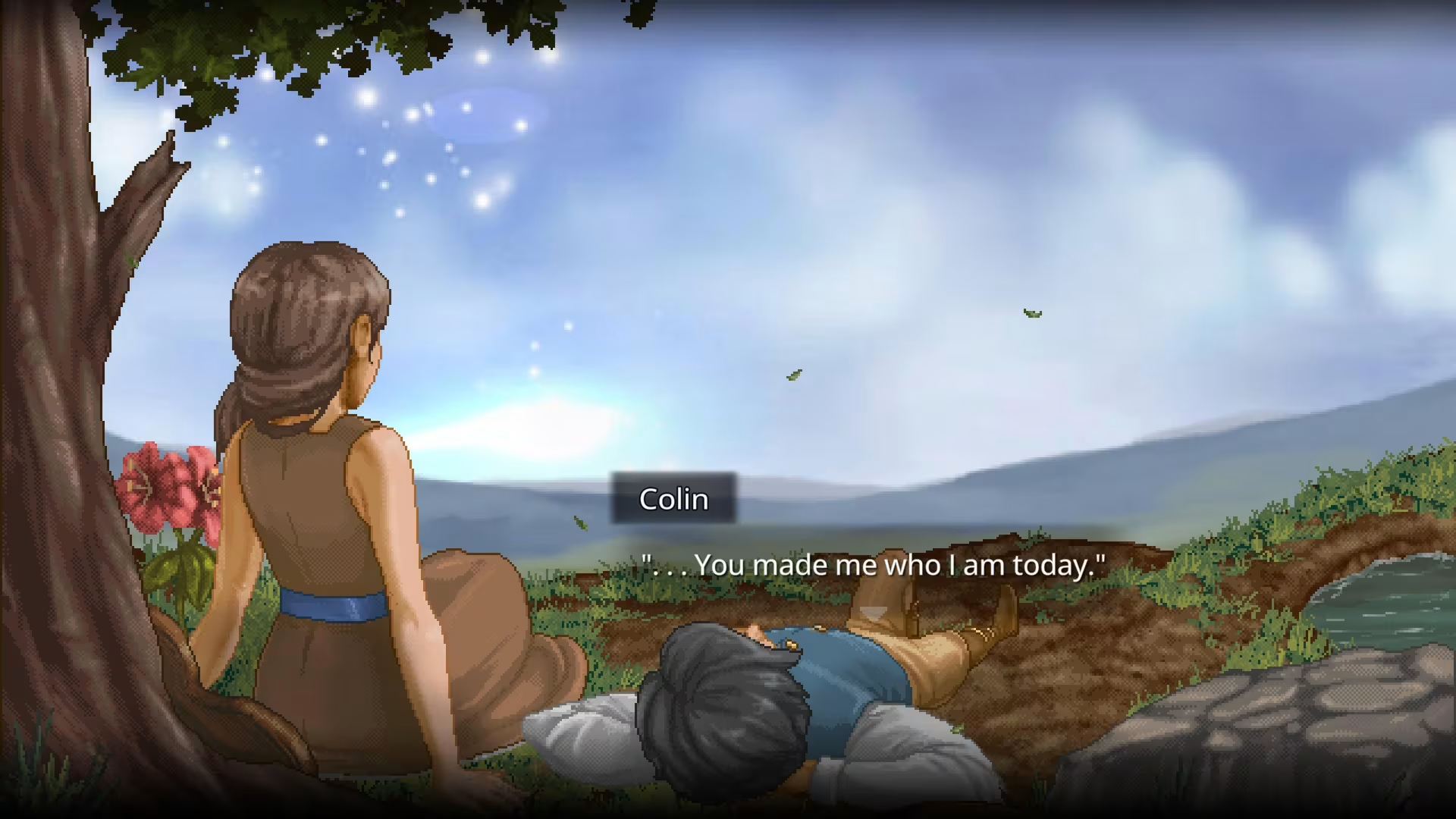
The writing oscillates between humour and heartbreak. Rosalene and Watts bring levity — sarcastic asides, professional detachment that masks care — but the further you go, the more that wit becomes armour. Their repartee, which could easily tip into sitcom territory, instead acts as emotional ballast. Without it, the story might collapse under its own melancholy.
The game’s best scenes are its quietest. A conversation with a childhood friend; a lingering shot of Colin standing by the window, staring at something unseen; the moment you realise that the wish he’s asked for can’t logically be fulfilled. These are not cinematic flourishes. They’re grace notes, rendered with restraint, and as the story progresses, you start to feel less like a player and more like a witness.
There’s a rhythm to the game which takes getting used to. Each chapter sends you deeper into Colin’s memories, then loops back to recontextualise what you’ve already seen. At first it feels repetitive; then you realise it’s deliberate. Memory doesn’t move forward—it ripples. By the time you reach the later acts, the structure reveals itself as emotional architecture. You’re not simply exploring time; you’re crossing between competing selves. Colin’s desire for flight — literal and metaphorical — anchors the narrative, while his relationships ground it. The tension between those two desires drives everything.
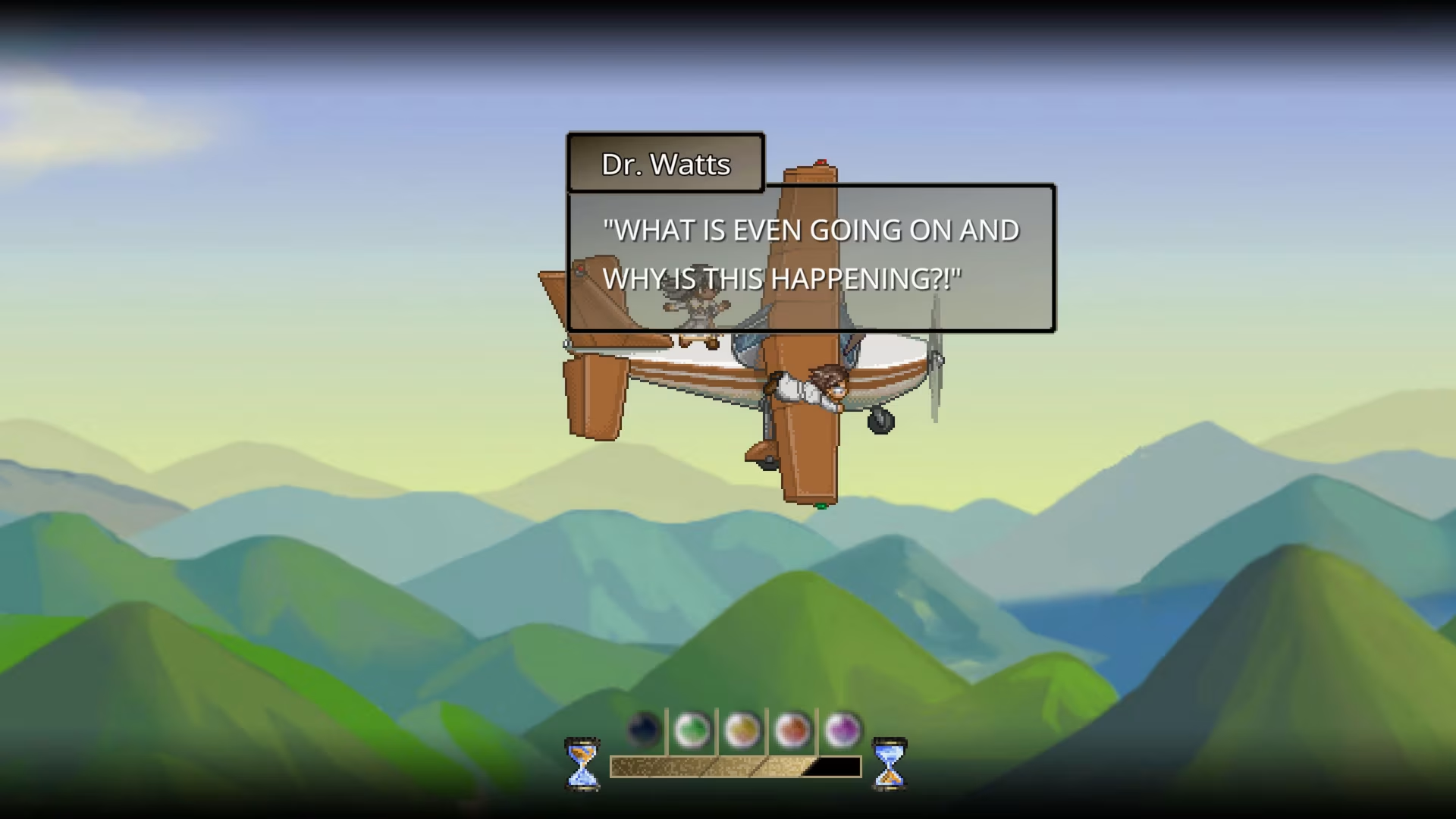
For all its tenderness, Finding Paradise isn’t flawless. The pacing wobbles. Some stretches drag. The minimal interactivity won’t convert those who already bounced off To the Moon. Occasionally, a joke feels dated or a bit of meta humour breaks tone. There are also some technical blips: a DualSense vibration which perpetuated long past the segment it was meant to end in; a bird sound effect stuck on loop; and more significantly, a frozen screen requiring a restart (thankfully rescued by the game’s frequent autosaving).
But those moments pass, and the sincerity underneath reasserts itself. There’s a clear creative voice here — Kan Gao’s mix of melancholy, mischief, and hope — that few studios would risk preserving intact. The script remains as sharp as ever: concise, human, occasionally devastating. The game’s story circles a simple truth: Colin just wants to fly without leaving anything behind and it hits harder than most entire cutscenes in blockbuster games. And when the final act plays its hand, it does so without manipulation. It trusts the player to connect the dots, to feel the space between memories, to understand that closure is a process, not an ending.
The pixel art aesthetic is still deceptively simple. Look closely, and you’ll notice how much is communicated through small gestures: the flicker of a sprite turning away, the way light falls differently across eras. It’s not nostalgia; it’s economy of storytelling.
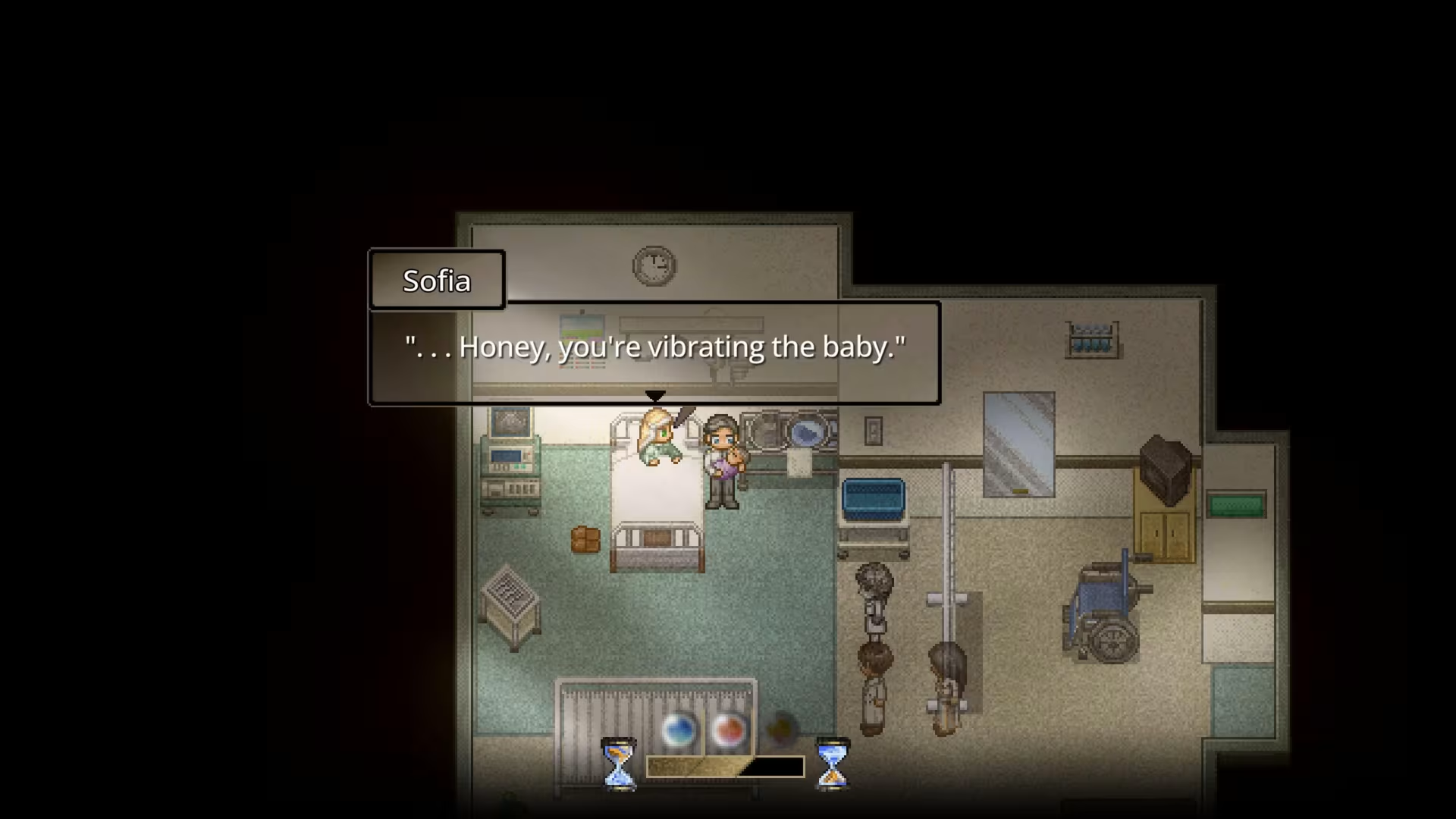
It’s impossible to discuss Finding Paradise without its older sibling. To the Moon was lightning in a bottle — a story so direct and disarming that it defined an entire subgenre of narrative indies. Finding Paradise doesn’t chase that emotional crescendo; it matures past it. Where To the Moon was about love and loss, Finding Paradise is about self-reconciliation. It’s quieter, sadder, more complex. I’d also recommend playing the short game A Bird Story first, since it acts as a bridge between the two main releases. Neither of the previous two instalments are vital to play, but you’ll get far more out of the experience if you do.
Finishing Finding Paradise leaves you with the same strange ache as waking from a vivid dream. You’ve been somewhere that feels both impossible and familiar. You’ve walked through someone else’s memories, only to realise you were looking at your own reflection. Few games handle mortality with this kind of grace. Fewer still trust their audience to find meaning in the mundane. Freebird Games continues to do both, and on PS5, the game finally has the technical stability to match its emotional ambition. It’s still a modest experience — short, quiet, mechanically sparse — but it’s exactly as long and as loud as it needs to be.
Finding Paradise doesn’t reinvent itself, but it doesn’t have to. What it offers is clarity, a version that honours the heart of the original while polishing away its rough edges. It’s the same story of memory and mercy, rendered with newfound warmth. If you come looking for thrills, you’ll find none. If you come looking for truth, you’ll find fragments — beautiful, painful, incomplete. That’s the point.
You can subscribe to Jump Chat Roll on your favourite podcast players including:
Let us know in the comments if you enjoyed this podcast, and if there are any topics you'd like to hear us tackle in future episodes!



